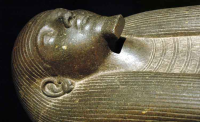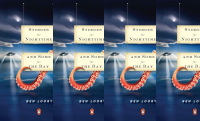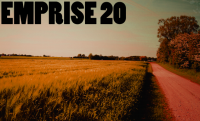Ruefle • Hemery • Frame
Selected Poems by Mary Ruefle
© 2010, Wave Books
154 pages, Hardcover
Though Mary Ruefle’s poems bear little influence of Frost, perhaps no contemporary American poet better embodies the great bard’s famous adage that a poem “begins in delight and ends in wisdom.” The recent recipient of the 2011 William Carlos Williams Award, Ruefle’s Selected Poems is a long, engrossing study in astonishment. Indeed, it is impossible not to read many, if not all, of her poems as testaments to the imagination, as when the speaker in “Nice Hands” reflects on being five years old:
my brain was a lightbulb that flickered on and off,
my soul was a milk bottle yearning to be full,
my stomach, made of concrete, had a long wooden table
where six dressed kittens sat, holding up their bowls.
To say that Ruefle’s work captures the meditative interiority of Dickinson, the kinetic associativeness of Breton, and the emotional frankness of Plath would shortchange Ruefle’s iconic and distinct magic, which is vast. Though her tone of hushed contemplation has remained largely unchanged through ten volumes of verse, Ruefle is a rare spirit among us, for she transcends our petty aesthetic camps with a voice that is simultaneously private and universal. Perhaps “Standing Furthest,” an early poem that opens this retrospective collection, best captures Ruefle’s quiet wonder:
of all things standing furthest
from what is real, stand these trees
shaking with dispensable joy,
or those in their isolation
shading an extraordinary secret.
Her Selected Poems is now available in paperback, but kudos are due to the good folks at Wave Books for not only publishing the initial volume in hardcover, but for their exquisitely crisp and understated design. If ever there was a poetry collection worth owning in hardcover, this is surely it. Continue reading









